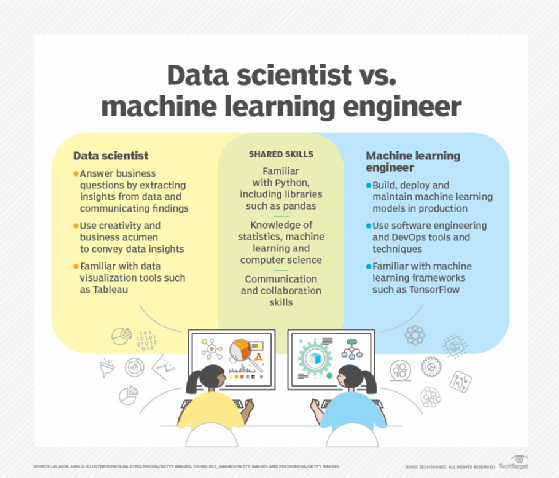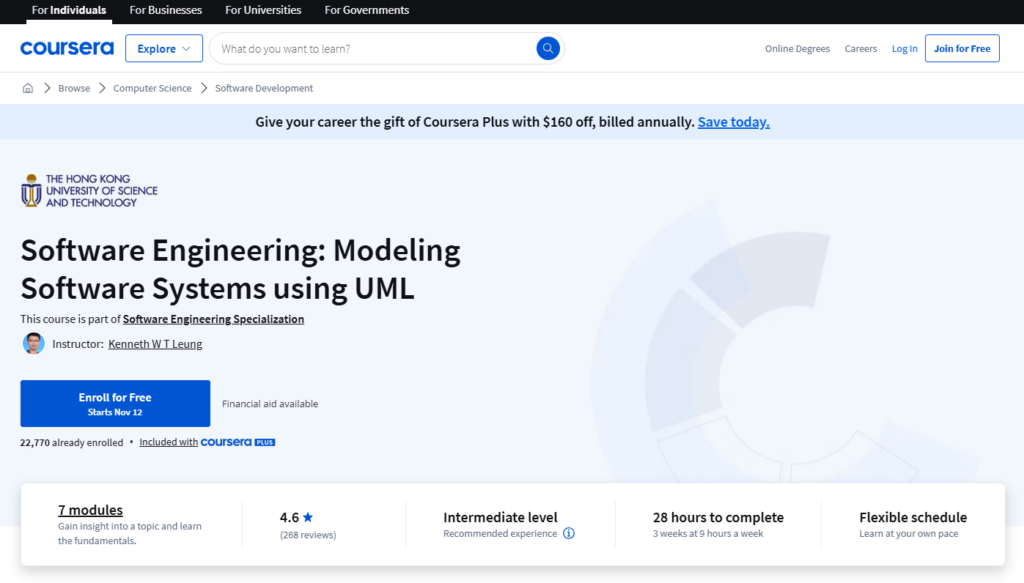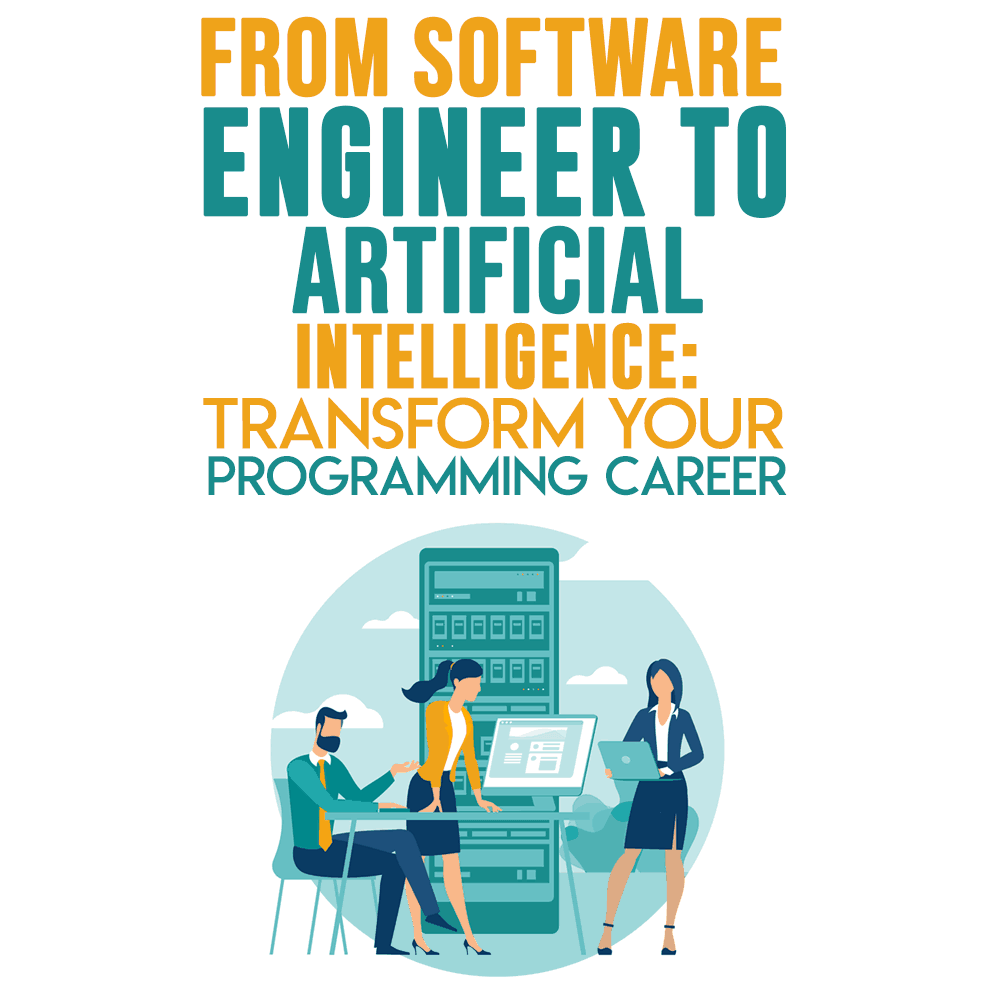All Categories
Featured
Table of Contents
- – The 6-Second Trick For What Is The Best Route ...
- – Some Ideas on Machine Learning You Should Know
- – Why I Took A Machine Learning Course As A Sof...
- – How How To Become A Machine Learning Engineer...
- – Machine Learning Is Still Too Hard For Softw...
- – The 6-Second Trick For Practical Deep Learni...
- – Machine Learning Engineers:requirements - Va...
Some people assume that that's disloyalty. Well, that's my whole profession. If somebody else did it, I'm going to utilize what that person did. The lesson is placing that aside. I'm requiring myself to believe through the feasible solutions. It's even more regarding taking in the content and attempting to use those ideas and less regarding locating a library that does the job or finding somebody else that coded it.
Dig a little bit deeper in the math at the start, just so I can construct that structure. Santiago: Lastly, lesson number 7. I do not believe that you have to understand the nuts and screws of every formula prior to you use it.
I would have to go and examine back to really get a much better intuition. That doesn't suggest that I can not resolve things utilizing neural networks? It goes back to our arranging instance I think that's simply bullshit guidance.
As a designer, I have actually worked on many, many systems and I've made use of numerous, numerous points that I do not comprehend the nuts and screws of exactly how it works, despite the fact that I comprehend the impact that they have. That's the last lesson on that particular string. Alexey: The funny thing is when I consider all these libraries like Scikit-Learn the formulas they utilize inside to apply, for instance, logistic regression or something else, are not the same as the formulas we examine in artificial intelligence classes.
The 6-Second Trick For What Is The Best Route Of Becoming An Ai Engineer?
Also if we tried to find out to get all these essentials of maker knowing, at the end, the algorithms that these libraries utilize are various. Santiago: Yeah, absolutely. I believe we need a whole lot much more materialism in the sector.

I generally speak to those that want to function in the sector that desire to have their impact there. I do not attempt to speak regarding that because I do not know.
Right there outside, in the sector, pragmatism goes a lengthy means for sure. (32:13) Alexey: We had a remark that said "Really feels more like motivational speech than talking regarding transitioning." So maybe we need to change. (32:40) Santiago: There you go, yeah. (32:48) Alexey: It is an excellent motivational speech.
Some Ideas on Machine Learning You Should Know
One of the points I desired to ask you. Initially, let's cover a pair of things. Alexey: Let's begin with core tools and structures that you need to learn to in fact change.
I understand Java. I understand SQL. I recognize how to make use of Git. I understand Bash. Perhaps I recognize Docker. All these things. And I become aware of device learning, it appears like an awesome point. What are the core tools and structures? Yes, I saw this video and I get persuaded that I don't require to obtain deep right into mathematics.
Santiago: Yeah, absolutely. I believe, number one, you must start discovering a little bit of Python. Because you already know Java, I don't believe it's going to be a substantial transition for you.
Not because Python is the exact same as Java, yet in a week, you're gon na obtain a lot of the differences there. Santiago: Then you obtain certain core devices that are going to be used throughout your entire occupation.
Why I Took A Machine Learning Course As A Software Engineer Things To Know Before You Buy
You get SciKit Learn for the collection of machine understanding formulas. Those are devices that you're going to have to be utilizing. I do not advise just going and finding out concerning them out of the blue.
Take one of those programs that are going to start introducing you to some issues and to some core concepts of machine understanding. I don't bear in mind the name, but if you go to Kaggle, they have tutorials there for cost-free.
What's great about it is that the only need for you is to understand Python. They're mosting likely to provide an issue and inform you just how to use choice trees to resolve that particular problem. I assume that process is exceptionally effective, due to the fact that you go from no device discovering history, to understanding what the issue is and why you can not fix it with what you know today, which is straight software application design techniques.
How How To Become A Machine Learning Engineer - Exponent can Save You Time, Stress, and Money.
On the various other hand, ML designers specialize in structure and deploying equipment understanding models. They focus on training designs with data to make predictions or automate jobs. While there is overlap, AI engineers handle more diverse AI applications, while ML designers have a narrower concentrate on artificial intelligence algorithms and their functional application.

Equipment learning designers focus on creating and releasing artificial intelligence versions into manufacturing systems. They work on design, guaranteeing designs are scalable, reliable, and integrated into applications. On the various other hand, information scientists have a broader function that includes information collection, cleaning, exploration, and structure versions. They are usually in charge of drawing out insights and making data-driven choices.
As organizations progressively adopt AI and maker understanding technologies, the demand for skilled professionals expands. Equipment learning engineers work on advanced projects, add to development, and have competitive salaries.
ML is basically different from standard software program growth as it concentrates on training computers to find out from data, instead of shows specific rules that are implemented methodically. Unpredictability of results: You are possibly made use of to writing code with foreseeable outcomes, whether your feature runs once or a thousand times. In ML, however, the end results are much less specific.

Pre-training and fine-tuning: Just how these versions are trained on huge datasets and then fine-tuned for certain jobs. Applications of LLMs: Such as message generation, view analysis and information search and access.
Machine Learning Is Still Too Hard For Software Engineers - Questions
The capability to manage codebases, combine adjustments, and fix conflicts is equally as important in ML advancement as it remains in standard software application tasks. The abilities created in debugging and testing software applications are highly transferable. While the context might transform from debugging application logic to recognizing issues in information handling or design training the underlying concepts of systematic examination, theory testing, and repetitive improvement coincide.
Equipment discovering, at its core, is heavily reliant on data and possibility concept. These are crucial for understanding exactly how algorithms gain from data, make forecasts, and evaluate their efficiency. You should take into consideration becoming comfortable with principles like analytical value, distributions, hypothesis testing, and Bayesian thinking in order to style and analyze versions successfully.
For those interested in LLMs, a complete understanding of deep understanding architectures is advantageous. This consists of not only the technicians of semantic networks however also the design of particular designs for different use cases, like CNNs (Convolutional Neural Networks) for image processing and RNNs (Recurring Neural Networks) and transformers for consecutive information and natural language handling.
You need to be aware of these issues and learn techniques for recognizing, reducing, and communicating about predisposition in ML designs. This includes the possible influence of automated decisions and the ethical implications. Numerous models, specifically LLMs, call for considerable computational sources that are often supplied by cloud systems like AWS, Google Cloud, and Azure.
Structure these skills will certainly not only assist in an effective transition into ML yet additionally ensure that developers can contribute properly and sensibly to the advancement of this dynamic area. Concept is necessary, however absolutely nothing beats hands-on experience. Begin working with jobs that permit you to apply what you've learned in a functional context.
Join competitors: Join systems like Kaggle to take part in NLP competitions. Develop your projects: Begin with basic applications, such as a chatbot or a text summarization tool, and gradually enhance intricacy. The field of ML and LLMs is quickly evolving, with new advancements and technologies emerging routinely. Remaining upgraded with the most up to date research study and patterns is essential.
The 6-Second Trick For Practical Deep Learning For Coders - Fast.ai
Sign up with areas and online forums, such as Reddit's r/MachineLearning or area Slack networks, to talk about concepts and get recommendations. Participate in workshops, meetups, and meetings to connect with various other experts in the area. Contribute to open-source tasks or compose blog site posts about your learning journey and tasks. As you obtain proficiency, start searching for chances to incorporate ML and LLMs into your work, or look for new roles concentrated on these technologies.

Vectors, matrices, and their role in ML algorithms. Terms like model, dataset, attributes, labels, training, reasoning, and validation. Information collection, preprocessing strategies, version training, assessment procedures, and implementation considerations.
Decision Trees and Random Woodlands: User-friendly and interpretable models. Support Vector Machines: Maximum margin classification. Matching issue types with ideal versions. Balancing performance and complexity. Basic framework of semantic networks: nerve cells, layers, activation features. Layered calculation and onward propagation. Feedforward Networks, Convolutional Neural Networks (CNNs), Frequent Neural Networks (RNNs). Photo recognition, series prediction, and time-series evaluation.
Constant Integration/Continuous Implementation (CI/CD) for ML process. Model surveillance, versioning, and efficiency monitoring. Finding and attending to changes in model efficiency over time.
Machine Learning Engineers:requirements - Vault Things To Know Before You Buy

You'll be presented to 3 of the most appropriate parts of the AI/ML technique; managed discovering, neural networks, and deep understanding. You'll realize the distinctions between standard programs and device understanding by hands-on development in monitored discovering before building out complicated distributed applications with neural networks.
This program works as a guide to maker lear ... Show Much more.
Table of Contents
- – The 6-Second Trick For What Is The Best Route ...
- – Some Ideas on Machine Learning You Should Know
- – Why I Took A Machine Learning Course As A Sof...
- – How How To Become A Machine Learning Engineer...
- – Machine Learning Is Still Too Hard For Softw...
- – The 6-Second Trick For Practical Deep Learni...
- – Machine Learning Engineers:requirements - Va...
Latest Posts
The Best Open-source Resources For Data Engineering Interview Preparation
The 10 Types Of Technical Interviews For Software Engineers
Best Ai & Machine Learning Courses For Faang Interviews
More
Latest Posts
The Best Open-source Resources For Data Engineering Interview Preparation
The 10 Types Of Technical Interviews For Software Engineers
Best Ai & Machine Learning Courses For Faang Interviews